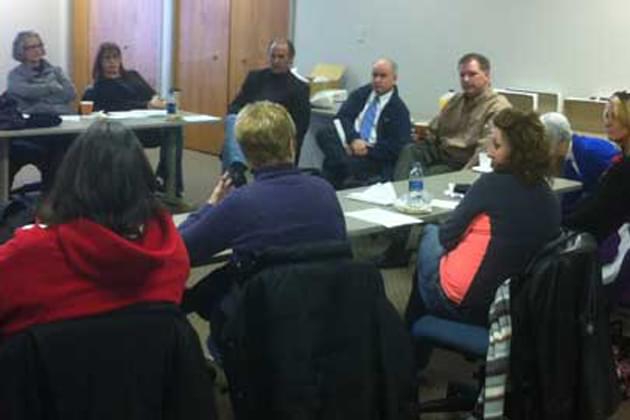
By Illinois Radio Network
SPRINGFIELD – The state’s five pension funds for state employees have a combined unfunded liability of $130 billion. Efforts to address that have stalled at the statehouse. But there’s a growing taxpayer liability at the local level.
Credit rating agency S&P said the combined unfunded liability of the state’s 600-plus public safety pension plans is nearly $10 billion.
How did it get that way?
Mark Fowler from the Northwest Municipal Conference told a legislative committee Tuesday most of their police and fire funds were 100 percent funded in 2000, but structural deficiencies were soon apparent.
“Despite a four-fold increase in taxpayer contributions to police and fire pensions over that time period (of ten years), funding levels continued to drop, thus threatening the long term solvency of these funds,” Fowler said.
Illinois Municipal League Executive Director Brad Cole said Tier II from ten years ago that changed benefits for new hires wasn’t enough. He said fund consolidation is needed.
“We want relief for the communities like Harvey and others around the state, north to south, but this is an issue,” Cole said.
Harvey and North Chicago have been forced to lay off dozens of public safety employees after the state’s comptroller was required by law to redirect tax revenue owed to the municipalities to underfunded pensions. Other municipalities’ could face the same problem.
One of the remaining routes to deal with the unfunded liability may be pension consolidation after the state’s highest court shot down reducing benefits.
Fowler said the difference in the cost of managing the consolidated Illinois Municipal Retirement Fund and individual public safety funds is more than $1,000 per member. He said separate funds are rife with inefficiencies.
“Considering that the pension boards are governed by approximately 3,300 pension board trustees that require training when they first come on board and annual training thereafter,” Fowler said.
Previous efforts to consolidate have stalled at the statehouse.
Cole said there’s no time left.
“We’re still talking about the same issues,” Cole said. “We need action now. The bills may be dead for the General Assembly, but they’re alive for us and our communities need them.”
Lawmakers continue to study consolidation.






